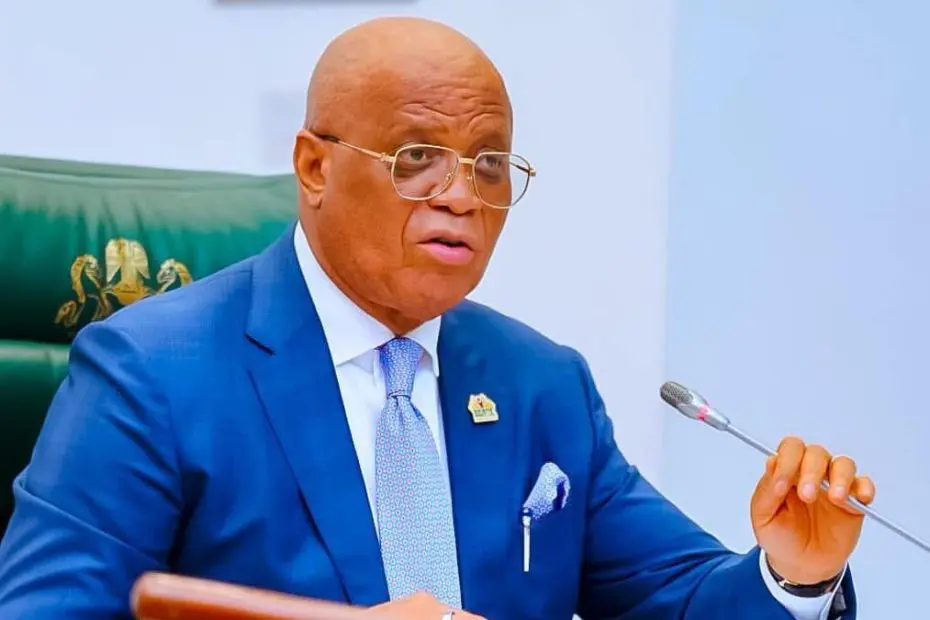The governor of Nigeria’s oil-rich Akwa Ibom State, Umo Eno, revealed on Tuesday that his recent defection from the opposition Peoples Democratic Party (PDP) to the ruling All Progressives Congress (APC) followed six months of strategic consultations. Speaking during an interview with Channels Television, Eno emphasized the necessity of aligning his state with Nigeria’s central government, particularly after the election of Senator Godswill Akpabio, an APC member from Akwa Ibom, as Senate President last year.
“This wasn’t a sudden decision—it took half a year of careful deliberation,” Eno stated. “Akwa Ibom has remained in the opposition for too long, and having a Senate President from our state in a different party no longer makes political sense.” He argued that remaining with the PDP would risk fueling tensions, as having the Senate President and state leadership in rival parties could “whip up unproductive sentiments.”
Eno, now a member of President Bola Tinubu’s APC, praised the federal government’s economic reforms, which he claimed have begun stabilizing an economy he described as “battered” when Tinubu took office in 2023. “The president’s policies, though challenging, are necessary for repositioning Nigeria,” he said. “States like ours have already seen benefits—these reforms have enabled us to access funds critical for development projects.”
The governor stressed pragmatic governance over partisanship, noting that Akwa Ibom’s interests are better served by collaborating with the central administration. “When the federal government is responsive to our needs, why would we oppose it?” he asked, adding that he monitors Tinubu’s performance closely. “If he underperforms, we’ll say so. But for now, he deserves support for the progress we’ve observed.”
Analysts view Eno’s defection as part of a broader trend of Nigerian politicians gravitating toward the ruling party to secure federal resources and influence. Akwa Ibom, a PDP stronghold for over two decades, now joins a growing list of states shifting alliances following Tinubu’s inauguration. Critics, however, argue such moves undermine multiparty democracy and prioritize patronage over ideology.
Eno dismissed concerns about political opportunism, framing his decision as a practical response to Nigeria’s governance structure. “Our Senate President needs our backing to deliver for Akwa Ibom,” he said. “Aligning with the center isn’t about party loyalty—it’s about ensuring our people aren’t left behind.” The remarks highlight the complex interplay of regional representation and federal dynamics in Africa’s most populous nation, where access to power often dictates development outcomes.
